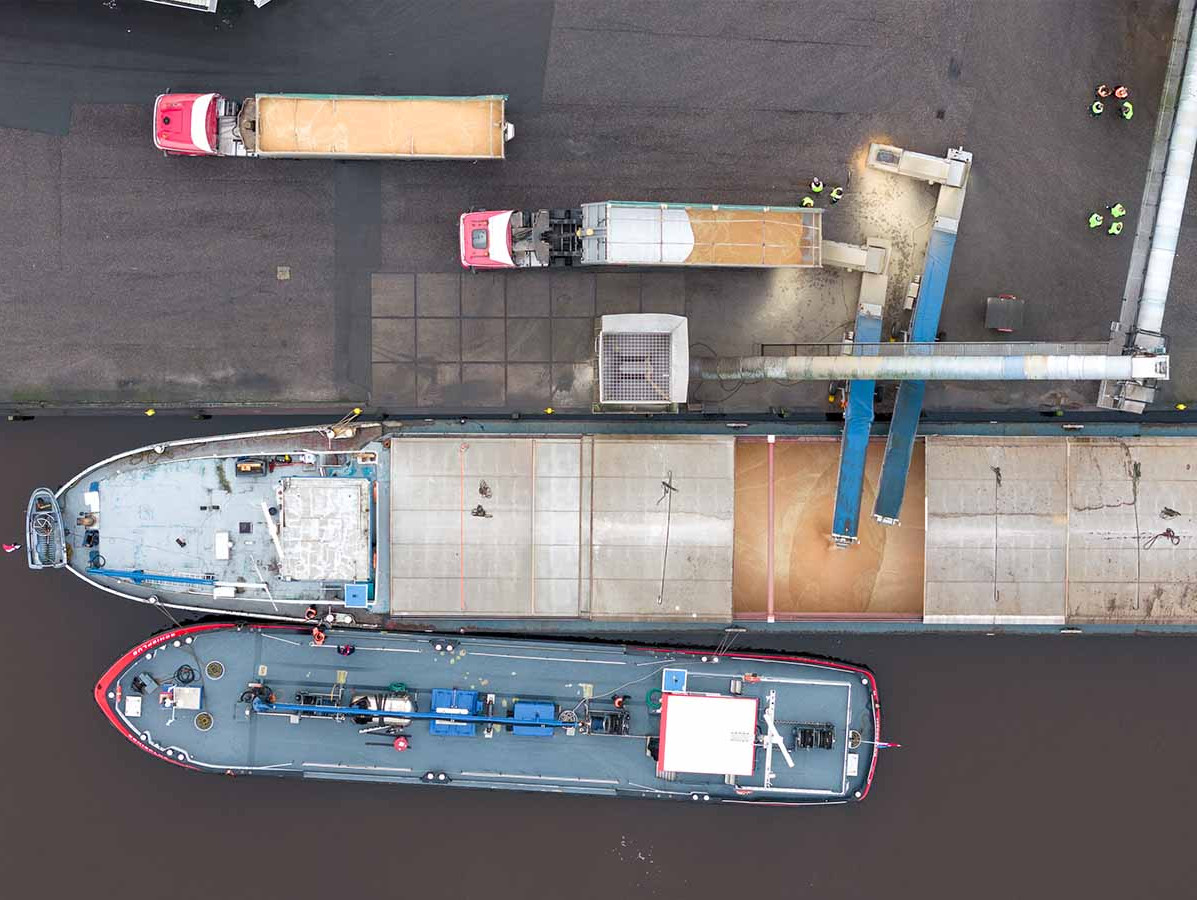
Royal Koopmans, renowned for its innovative grain ingredients, has recently launched a notable sustainability initiative. The company is the first in the Netherlands to deploy a ship transporting Nedertarwe, powered by HVO100 biofuel, resulting in a substantial reduction in CO2 emissions.
This initiative was made possible through the collaboration of Royal Koopmans with leading partners in the grain chain. This includes partnerships with, among others, REINPLUS FIWADO Bunker, a part of VARO Energy, inland shipping cooperative NPRC, grain collector CZAV, and NPRC member VOF Sympathie Shipping. Dirk Lodewijk, CEO of Royal Koopmans, explains that the involvement of all partners in the chain is crucial for achieving sustainable food production that meets consumer demands.
Opting for HVO100, made from plant-based residual oils and fats, represents a move towards reducing the ecological footprint in the logistics sector. This initiative demonstrates Royal Koopmans' commitment to environmentally friendly solutions, not only in their production processes but also in their transportation methods.
The NPRC, represented by Robert van Vliet, emphasizes the importance of long-term solutions for sustainable water transport. The use of biofuels such as HVO is a significant step in this direction. Ben van Kol, Director of Bunkering at VARO Energy, confirms that this project aligns with VARO Energy's objectives to serve as a partner in the energy transition.
By using HVO100 biofuel in Nedertarwe transport, a single ship reduces CO2 emissions by 44,363.2 kg. This is equivalent to the CO2 emissions from about 65 flights from Amsterdam to Rome. The project is part of a broader ambition to achieve significant CO2 reduction in inland shipping by 2023 and aims for a climate-neutral sector by 2050, as envisioned in the Green Deal for Maritime Shipping, Inland Shipping, and Ports.
Nedertarwe, the Dutch grain at the heart of this initiative, reflects Royal Koopmans' commitment to using sustainable raw materials. By utilizing sustainably grown ingredients, the company contributes to improving biodiversity and soil health and aids in reducing environmental impact and CO2 emissions.
Source: Royal Koopmans